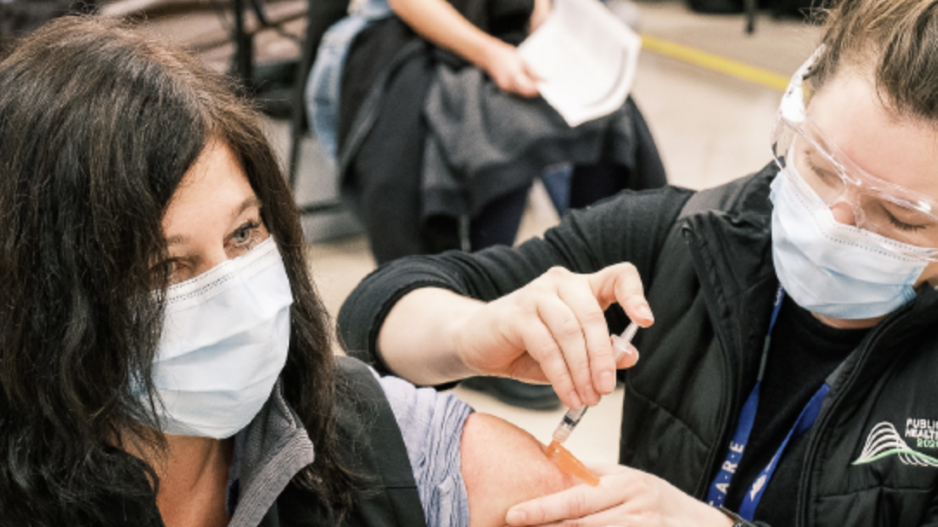About half a million British Columbians are either still awaiting or have not yet booked their COVID-19 booster shots after receiving invites from the province.
This lag in administering jabs comes as the highly transmissible Omicron variant spent much of December setting new records for COVID-19 cases.
Invites for booster shots have totalled 1,542,000 since October 27, while 961,014 British Columbians — or about 20% of the eligible population — have received their third jabs.
About 200,000 of those booster recipients are health-care workers, while about 160,000 are those considered clinically extremely vulnerable.
A total of 710 locations — a mix of clinics and pharmacies — are administering booster doses.
“More sites are coming online daily, in particular pharmacies,” Health Minister Adrian Dix said during a Tuesday briefing.
Since last week, an additional 254 pharmacies began administering boosters and another 200 are set to open by the middle of the month.
Provincial officials revealed this past Friday it was shifting to an “interval-based” priority system for determining its vaccination schedule.
Rather than scheduling shots based on age groups or higher-risk populations, the province is opening up bookings based on when someone is approaching the six-month mark since their second COVID-19 vaccine dose.
The shift in vaccination policy comes after the province said it completed notification efforts on the high-risk groups within B.C. That includes front-line health workers, those in remote and Indigenous communities, those who were vaccinated using two AstraZeneca plc doses and those who are age 60 and older.
The province originally planned to have intervals of six to eight months between a person’s second vaccine shot and their boosters.
But Penny Ballem, executive lead for B.C.’s COVID-19 vaccine rollout, said last week the quick spread of the new Omicron variant means the province will now shorten that period to a target of six months.
Provincial health officer Dr. Bonnie Henry said Tuesday the province has no plans to shorten the gap between doses for children, who only began getting their shots late last year.
“We are sticking with eight weeks for a variety of reasons,” she said, noting two doses won’t entirely prevent transmission of Omicron.
Henry added that the current interval is needed to build up maximum protection against COVID-19.
She described the highly transmissible Omicron variant as “mostly mild illness” for those already vaccinated.
“At this point, most people in B.C. likely have a friend or family member or colleague who has been infected with the Omicron variant,” she said.
But due to Omicron’s short incubation period and high transmissibility, Henry said businesses could face as many as one-third of their workforce feeling ill at any given time.
“It is going to be a challenging few weeks,” she said.
Henry urged businesses to put in “contingency plans” to ensure they continue operating when staff are sick.
That includes ensuring employees may work from home if it’s possible to do so, staggering shifts and limiting the number of customers in any one space.
—With files from Chuck Chiang




